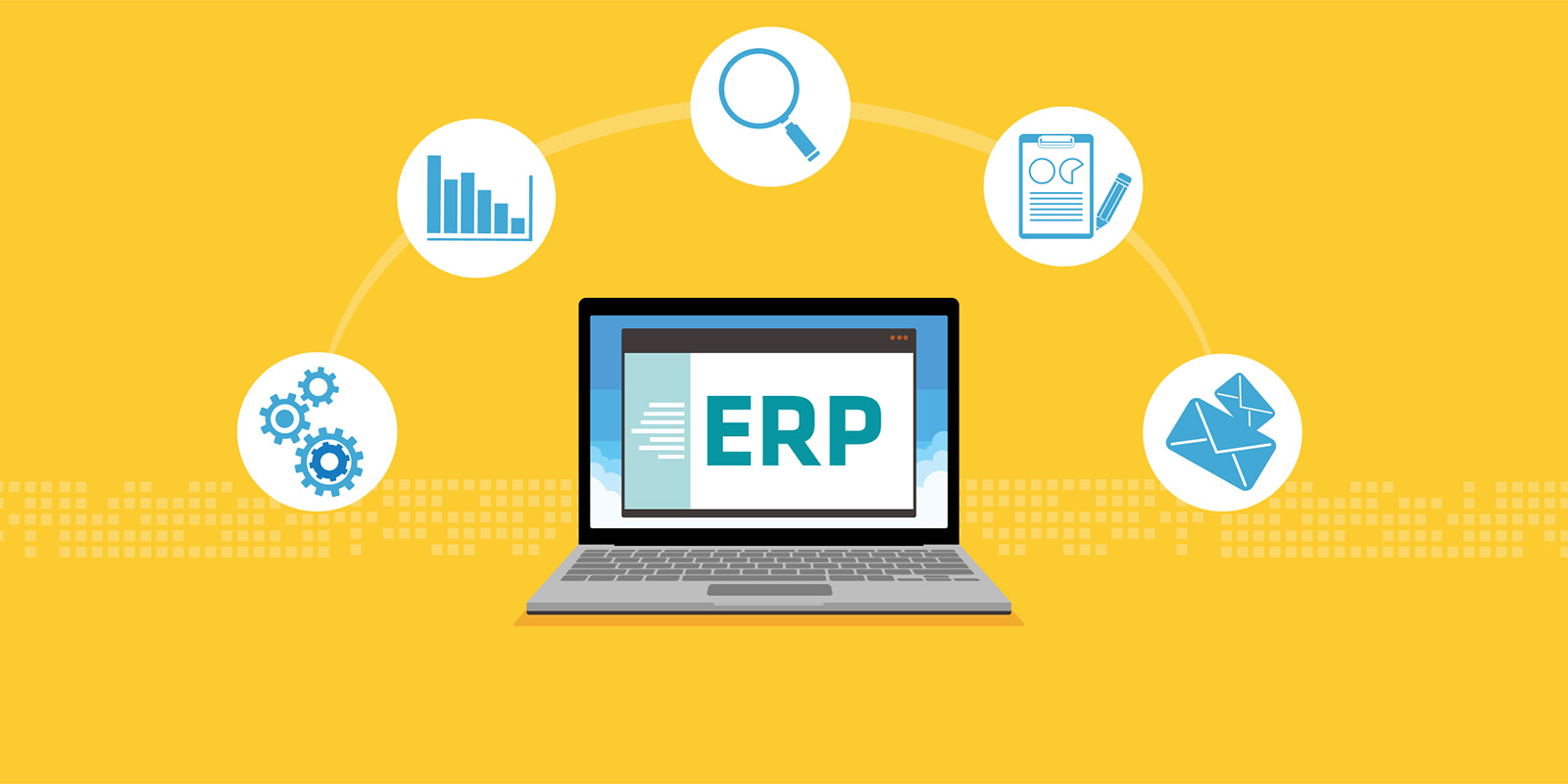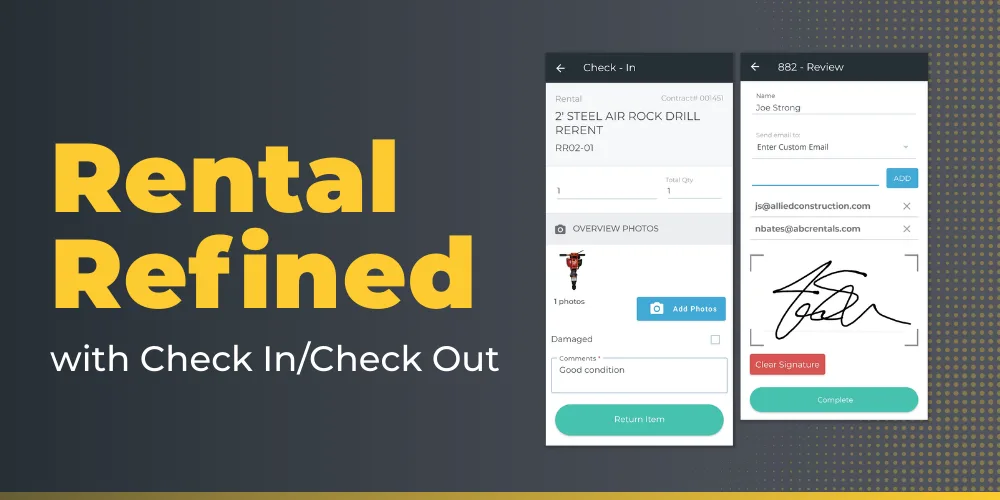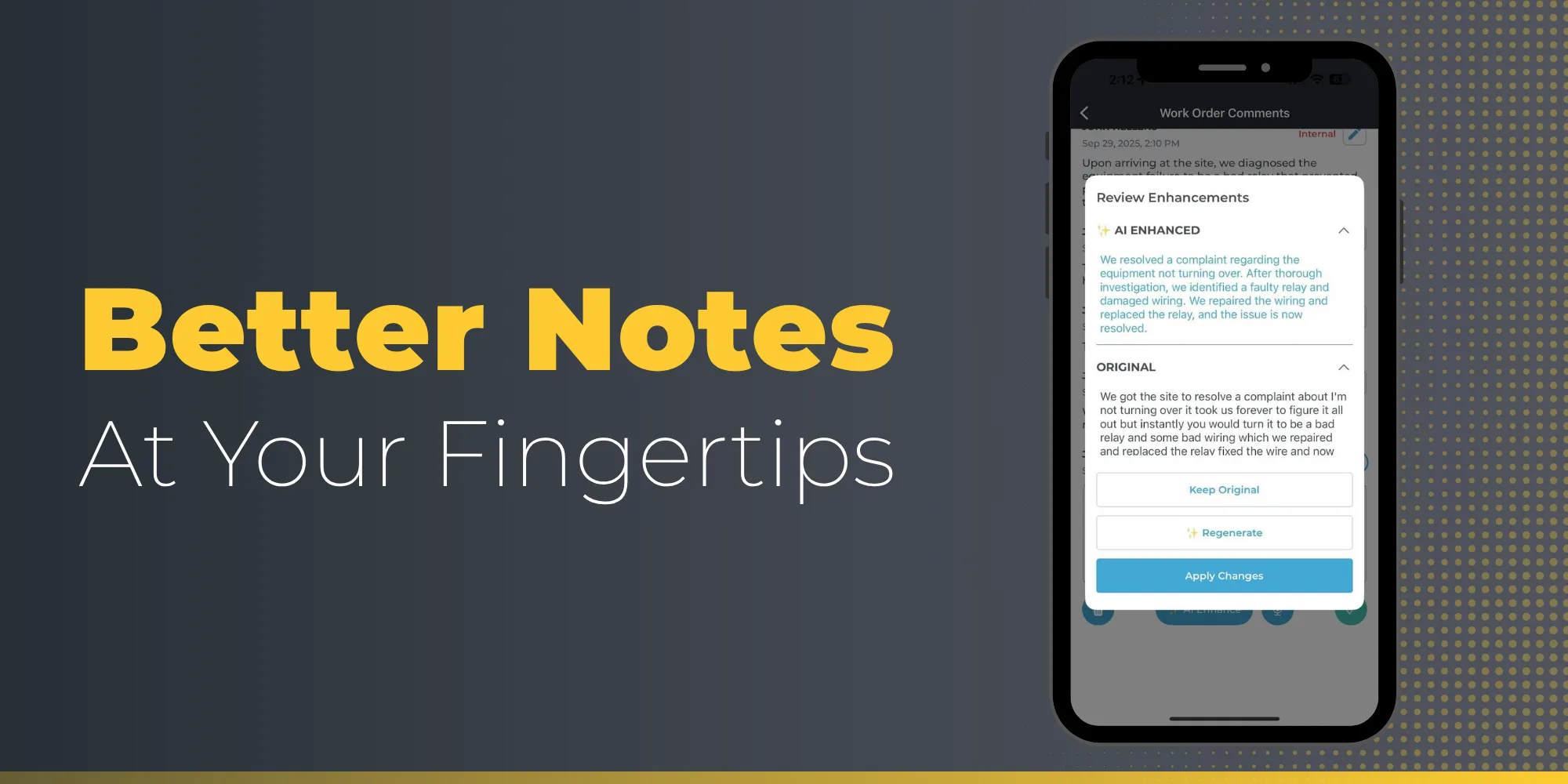In the equipment rental industry, the vast number of moving parts could cause you to lose track of your equipment, endure unexpected downtime, or miss out on profits from unpaid invoices.
ERP (Enterprise Resource Planning) systems have emerged as pivotal tools for companies seeking comprehensive and integrated management solutions in modern business management. Traditionally, these systems synchronize core processes such as finance, HR, services, procurement, and supply chain management into a unified system, offering real-time data and streamlined business operations. By adopting ERP, businesses have transitioned from disjointed and manual management practices into a cohesive, data-driven environment.
In the specific arena of equipment rental businesses, implementing an ERP system is transformative. Such systems integrate all facets of the operation—from inventory management and customer service to maintenance schedules and financial reporting—and provide the agility and insight necessary to excel in a competitive marketplace. This article delves into ERP’s vital role in equipment rental companies, elucidating the compelling reasons for their adoption to ensure efficiency, enhance customer satisfaction, and drive sustainable growth.
What Is ERP Software?
ERP is a software application that helps an organization track all core business processes. The software collects, stores, organizes, and analyzes data related to measurable business activities.
This software can pull data related to the rental counter, the back-office, accounting, purchasing, warehouse receiving, equipment maintenance, and more in the rental business. ERP is the generic term for software systems that include Texada’s Rental Management software.
When used efficiently, an ERP system will allow you to connect all aspects of an equipment rental operation, becoming the central hub for all your company’s workflows.
Naturally, investing in software that can automate such a labor-intensive task could save a business money and time.
Unveiling the Advantages of ERP Systems for Business Efficiency and Growth
If you have never used an ERP before, it can seem like you are taking a massive step into unfamiliar territory. From automating maintenance schedules to generating utilization reports, there are many operational advantages ERP systems provide to rental businesses.
| Advantage | Description |
| Organized Customer Information |
|
| Built to Scale |
|
| Remote Capabilities |
|
| Online Customer Access and Reservations |
|
| Real-Time Inventory Management |
|
| Simplified Contract Management |
|
| Integrate Your Accounting |
|
| Ease of Calculation for Rent-to-Own Options |
|
| More Accurate Cost Analyses |
|
| Reduced Costs |
|
| Track Maintenance Schedules |
|
| Generate Reports |
|
Inventory Management and Control: The Heart of Equipment Rental Success
Inventory management and control are at the core of any thriving equipment rental business. By integrating an ERP system, companies can monitor their inventory in real-time and optimize every aspect associated with their assets. This facet of ERP is critical in maximizing equipment utilization and, subsequently, the company’s revenue.
- Real-time tracking of equipment availability: ERP systems provide a comprehensive view of which items are on rent, available, or due for return, ensuring that inventory levels are accurately monitored and that customer demands are met efficiently.
- Maintenance and repair scheduling: Regular maintenance and prompt repairs are essential for the longevity and reliability of rental equipment. ERP systems facilitate proactive maintenance management, reducing the likelihood of unplanned downtime.
- Minimizing equipment downtime: Effective tracking and scheduling features within ERP solutions allow businesses to minimize the time equipment is out of commission, which is key to maintaining a competitive edge and customer satisfaction.
An ERP system empowers equipment rental businesses with the tools for meticulous inventory management. This ensures that enterprises stay ahead in a market where the efficient allocation and upkeep of assets are integral to success.
Enhancing Customer Experience with an ERP in Equipment Rental
Maintaining robust customer relationships is vital in the competitive landscape of equipment rental businesses. ERP systems are crucial in improving customer relationship operations. By deploying an integrated ERP solution, equipment rental companies can elevate their CRM to new heights, delivering personalized attention and streamlining rental workflows effectively.
Personalizing Customer Service
Personalization is the cornerstone of building lasting customer relationships. With ERP systems, rental businesses can harness powerful tools to tailor their services to individual needs and preferences. Customer profiles are enriched with each interaction, enabling businesses to anticipate demands and customize offerings, which can significantly enhance customer satisfaction and loyalty.
Monitoring Customer Interactions and History
An ERP system provides a centralized database that tracks all forms of customer engagement. This integrated approach ensures staff across different departments can access up-to-date information on customer interactions, rental history, and feedback. With this insight, businesses can make informed decisions to nurture relationships and resolve issues swiftly.
Streamlining the Rental Pipeline from Inquiry to Fulfillment
ERP solutions significantly improve efficiency in managing the customer journey from initial inquiry to rental fulfillment. By optimizing the rental pipeline, ERP systems ensure that the entire process is smooth and hassle-free for customers. This encompasses quick availability checks, reservation management, contract handling, and return processing. This seamless integration results in happier customers and repeat business, cementing the importance of ERP in equipment rental companies.
Financial Management and Cost Savings
Understanding the fiscal dynamics of an equipment rental business is crucial, and an ERP system plays a central role in reinforcing financial stability. Integrating financial management tools within an ERP framework ensures your business can keep a tight rein on its finances, leading to substantial cost savings over time.
Accurate and Timely Invoicing and Payments
ERP systems streamline the billing process, leading to more accurate and prompt invoicing and payments. Such precision reduces errors and mitigates disputes, fostering a healthy cash flow that is the lifeblood of any rental business. Efficient transaction processing enabled by ERP ensures that your revenue streams are consistent and predictable.
Expense Tracking and Revenue Forecasting
A strategic advantage is tracking every expenditure and accurately forecasting future revenue. ERP software enables a detailed analysis of financial data, assisting in effective budget management and revenue prediction. These capabilities allow equipment rental businesses to make informed decisions that align with their financial targets.
Identifying Areas to Cut Costs Without Sacrificing Service Quality
ERP systems are pivotal in identifying cost-saving opportunities by analyzing operational data to uncover inefficiencies. Through this analysis, businesses can reduce waste and focus on core services without diminishing the quality of their offerings. This delicate balance between cost-cutting and maintaining high service standards is achievable with the insights provided by a robust ERP system.
- Reduces overhead through automated workflows and reduces the need for manual input.
- Enhances decision-making with comprehensive financial reporting tools.
- Enables strategic procurement by identifying cost-effective vendor relationships and bulk purchasing opportunities.
In conclusion, the importance of ERP in financial management cannot be overstated for equipment rental businesses. It is the cornerstone of sustaining profitability and driving cost efficiency, all while ensuring optimal service quality and client satisfaction.
Pro Tip: Leverage your ERP system’s financial reporting tools to gain real-time insights into your cash flow and expenditures. This enables quick, informed decisions, reduces waste, and maximizes profitability without compromising service quality.
Maintenance Scheduling and Equipment Tracking: The Cornerstones of Efficiency
At the heart of any successful equipment rental business lies impeccable maintenance scheduling and equipment tracking management. ERP systems are pivotal in optimizing these processes, ensuring uninterrupted service and customer satisfaction. Let’s delve into how an ERP elevates these aspects of your business.
Predictive Maintenance Based on Usage Statistics
The power of predictive maintenance cannot be overstated. By leveraging usage statistics, an ERP system can anticipate the need for maintenance before a breakdown occurs. This proactive approach minimizes downtime, extends the lifespan of your equipment, and saves on costly emergency repairs.
Real-time Location Tracking of Rental Equipment
Keeping a vigilant eye on your assets is crucial. With ERP software, businesses benefit from real-time location tracking capabilities, allowing for streamlined inventory management and quick response to client needs. This feature not only enhances the security of your assets but also boosts operational efficiency.
Scheduling Maintenance to Avoid Conflicts with Customer Rentals
- Predictive analytics ensure timely maintenance and reduced equipment failures.
- GPS-enabled tracking systems within the ERP allow precise equipment location, deterring loss and theft.
- Automated scheduling assists in planning maintenance tasks during off-peak times, avoiding disruption of rental availability.
By integrating maintenance scheduling and equipment tracking within your ERP system, your equipment rental business can operate at peak efficiency, maintain a high level of service quality, and uphold customer trust.
Maximizing Equipment Rental Efficiency Through ERP Systems
Efficiency in rental processes is paramount for any equipment rental business looking to thrive in a competitive market. An ERP system can revolutionize how your company handles rentals, turning complexity into simplicity. Integrating and automating core business processes, an ERP delivers a more streamlined approach to the rental lifecycle, from booking to return. Let’s explore how an ERP system can optimize your operations.
Simplifying the Booking and Return Process
An ERP system is crucial in reducing manual input and potential human error. With seamless interface designs, the booking process becomes intuitive for your staff, allowing them to reserve equipment for customers swiftly. Upon return, the ERP aids in verifying the state of the equipment. It quickly closes out the rental agreement, ensuring a rapid turnaround essential for high customer satisfaction and increased gear utilization rates.
Quick Adjustments to Rental Agreements
Flexibility is at the heart of rental customer service. ERP systems enable businesses to make quick adjustments to rental agreements, whether extending the rental period, upgrading the equipment, or applying discounts. These adjustments often involve complex recalculations that an ERP system can automatically handle, enabling your employees to provide immediate and accurate information to customers.
Providing a Seamless Rental Experience to Customers
- Simplification: ERPs simplify complex operations within the rental cycle by centralizing data and processes.
- Speed: Automated processes in ERPs ensure quick service, increasing customer satisfaction and equipment turnover.
- Customer Experience: A functional ERP system positively impacts customer engagement, providing easy access to information and transparent dealings.
An ERP system is not just a software solution; it’s a strategic enhancement that boosts the efficiency of rental processes. Equipment rental businesses that embrace this technology can expect elevated operational performance and superior customer service.
Maximizing Profitability: Understanding the ROI of an ERP Solution in Equipment Rental Businesses
Implementing an ERP system in an equipment rental business can be a significant investment, but its financial impact is often very positive. A thorough ROI and Cost-Benefit Analysis is crucial for companies considering this step to ensure the potential returns justify the initial expenditure.
Assessing the Financial Impact of an ERP Solution
When evaluating an ERP system, it’s essential to look beyond the upfront costs and consider the comprehensive value it brings. Cost savings from improved efficiency in inventory management lead to reduced downtime due to better maintenance scheduling, and a leaner and more accurate financial management system all contribute towards a strong financial return.
Long-term Benefits Versus Initial Costs
Although the upfront costs of an ERP system can be substantial, the long-term benefits are often much greater. An ERP solution can substantially increase profitability over time by enhancing productivity and providing invaluable insights into every aspect of the business. Improved decision-making based on real-time data alone can have a transformative effect on a company’s bottom line.
Pro Tip: Conduct a detailed Cost-Benefit Analysis (CBA) for your ERP investment by factoring in the upfront costs and long-term savings from efficiency gains, reduced downtime, and improved decision-making. This holistic view will highlight the true ROI and help justify the expenditure.
The Pivotal Advantage of ERP in Equipment Rental Businesses
An ERP can be the backbone of efficiency and growth for equipment rental businesses, from seamless integration of rental processes to real-time inventory management and enhanced customer relationships.
.
Whether improving the bottom line through meticulous financial management, ensuring compliance with regulations, or securing data—all while providing scalable and flexible functionalities—an ERP system equips rental companies with the tools necessary to thrive in a dynamic market.
Enhance Your Business’s Operational Efficiency With Texada
Are you looking for an ERP system to supercharge your rental productivity? Are you tired of using multiple platforms? Or manual data entry?
We have what you’re looking for, with countless customizations you can make to suit your precise business needs.
We help our users manage over 10 billion dollars in rental assets, and we are trusted to perform each day by more than 2,000 rental stores worldwide.
Speak to one of our software experts today to see how Texada’s solutions can help you break new ground on business growth.
Key Takeaways
- ERP systems centralize all business processes in equipment rental operations, such as inventory management, customer service, maintenance scheduling, and financial reporting, improving efficiency, reducing errors, and cost savings.
- ERP systems significantly enhance customer relationship management by personalizing services, streamlining interactions, and providing seamless rental experiences from inquiry to fulfillment, which boosts customer satisfaction and loyalty.
- With ERP solutions, businesses can track equipment in real-time, schedule predictive maintenance to avoid downtime and ensure equipment is always available and in optimal condition, improving operational reliability and asset longevity.
- An ERP system enhances financial management through accurate invoicing, expense tracking, and revenue forecasting. This integration leads to significant cost savings, improved cash flow, and a strong return on investment (ROI).




